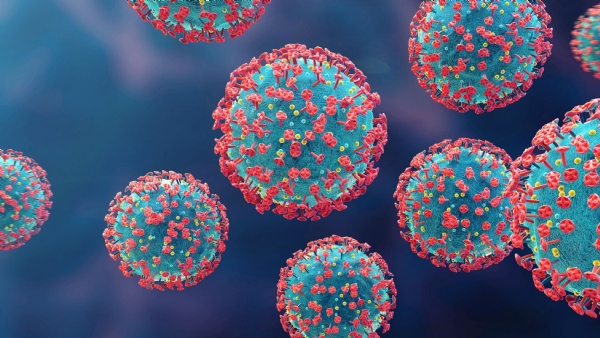Indian scientists develop unique self-disinfecting, Anti-Viral face mask
This face mask was developed by scientists at the International Advanced Research Centre for Powder Metallurgy and New Materials
|
A team of Indian scientists, in collaboration with an industry partner, has developed a self-disinfecting 'Copper-based Nanoparticle-coated Anti-viral Face Mask' to fight against the Covid-19 pandemic. The biodegradable, highly breathable and washable mask exhibits high performance against the Covid-19 virus, along with several other viral / bacterial infections.
 However, the Indian market is selling expensive masks that neither exhibit antiviral nor antibacterial properties, especially when people wear those and move about at densely populated places like hospitals, airports, stations, shopping malls, etc. where the virus load is very high.
However, the Indian market is selling expensive masks that neither exhibit antiviral nor antibacterial properties, especially when people wear those and move about at densely populated places like hospitals, airports, stations, shopping malls, etc. where the virus load is very high.
"In the present scenario, where mutations in coronavirus causing the COVID-19 pandemic are fast emerging, it is an urgent necessity to develop a low-cost antiviral mask. To this end, scientists have developed the self-disinfecting 'Copper-based Nanoparticle-coated Antiviral Face Masks' under the Department of Science & Technology (DST) sponsored Nano-Mission project," said a release from the Ministry of Science & Technology.
This face mask was developed by scientists at the International Advanced Research Centre for Powder Metallurgy and New Materials (ARCI), an autonomous R&D Centre of Department of Science and Technology (DST), Government of India, in collaboration with the Centre for Cellular & Molecular Biology (CSIR-CCMB), and Resil Chemicals, a Bengaluru-based company.

Public mask wearing is most effective in reducing the spread of the virus Covid-19 caused by SARS-CoV-2, an enveloped positive sense single-stranded RNA virus, where the mode of transmission is via respiratory particles that are mainly airborne.
"In the present scenario, where mutations in coronavirus causing the COVID-19 pandemic are fast emerging, it is an urgent necessity to develop a low-cost antiviral mask. To this end, scientists have developed the self-disinfecting 'Copper-based Nanoparticle-coated Antiviral Face Masks' under the Department of Science & Technology (DST) sponsored Nano-Mission project," said a release from the Ministry of Science & Technology.
This face mask was developed by scientists at the International Advanced Research Centre for Powder Metallurgy and New Materials (ARCI), an autonomous R&D Centre of Department of Science and Technology (DST), Government of India, in collaboration with the Centre for Cellular & Molecular Biology (CSIR-CCMB), and Resil Chemicals, a Bengaluru-based company.
ARCI developed copper-based nanoparticles of around 20 nanometres by a Flame Spray Pyrolysis (FSP) processing facility. FSP process involves conversion of solution precursors into nano-powders by high temperature pyrolytic decomposition. Stable nanoparticle suspension was obtained by optimising the solid loading and pH.
A uniform layer of this nano-coating on cotton fabric with good adhesion was achieved using a suitable binder. The coated fabric exhibited an efficacy of more than 99.9% against bacteria. CSIR-CCMB tested the efficacy of this fabric against SARS-CoV-2 for their disinfection properties and reported 99.9% disinfection, as evident from the standard results.
